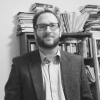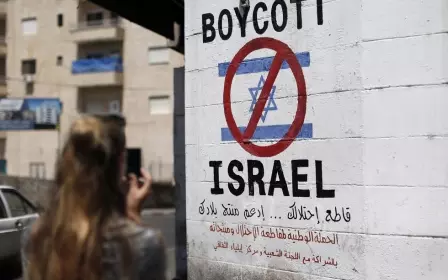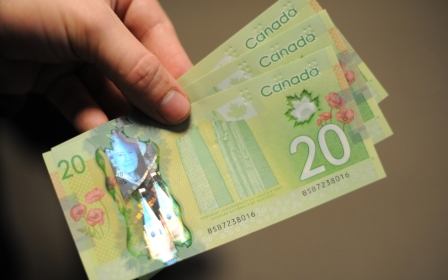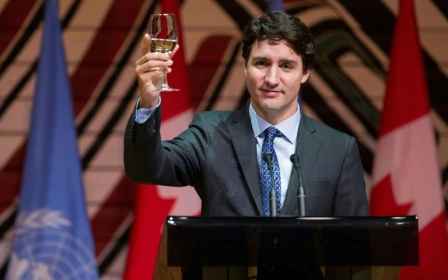Harper or Trudeau: Canada's status quo Middle East policy
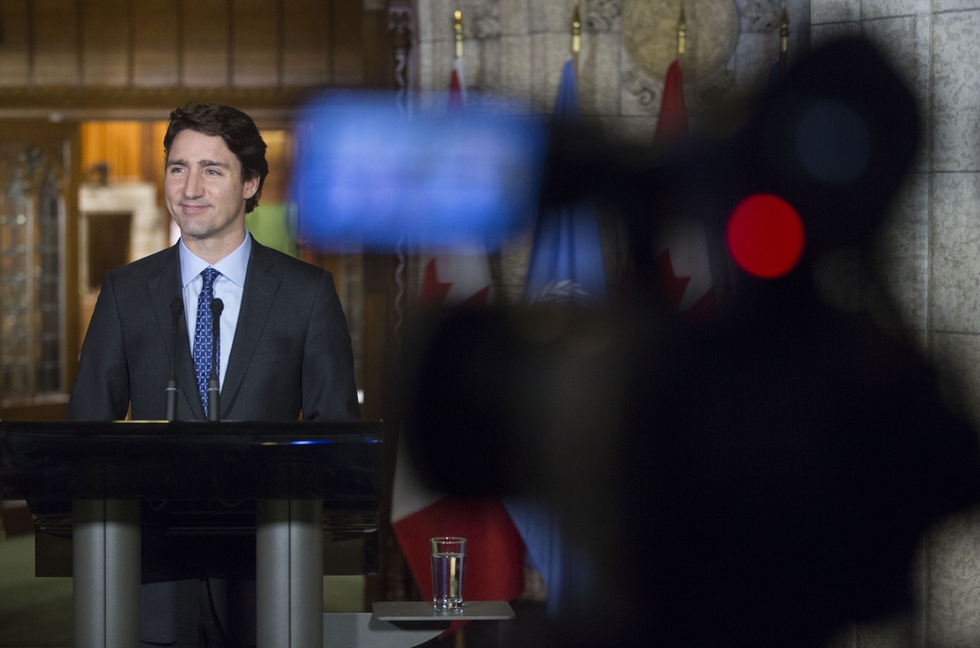
While Canada’s federal Liberal government has thus far not used the same nakedly Islamophobic rhetoric as its Conservative predecessor, Justin Trudeau’s administration continues to pursue policies inhospitable to Muslims and Arabs at home and abroad.
Toronto commenter Desmond Cole has noted that when the Liberals were in opposition, they advocated for Abdullah Almalki, Ahmad El Maati, and Muayyed Nureddin, three Canadians who were tortured in Syria with the help of Canadian security forces. Now, Cole reports, the Liberals “are actively fighting the victims’ claims for reparations and protecting government officials who helped expose them to harm”.
In 2015, when the Liberals were in opposition, they supported the Conservatives’ draconian Anti-Terrorism Act. During the campaign, the Liberals said they would amend the law, but have not done so and have not specified a date when they will. Legal scholar Azeezah Kanji notes that under this law, people can be preventatively detained for seven days, and “be arrested if police believe that a terrorist activity may (not will) be carried out and that arrest is likely (not necessary) to prevent it”.
Thanks to decades of propaganda from politicians, the news media and Hollywood, terrorism and Arabs and Muslims are fused in the popular imagination so there is every reason to think that the measures Kanji describes will be detrimental to Canadians from one or both of these groups. Because of the secrecy of counterterrorism law enforcement, data about the precise degree to which various demographics are bearing the brunt of the law is not available. However, there is evidence that groups including the Canadian Civil Liberties Association and the National Council of Canadian Muslims were right to warn that the Anti-Terrorism Act would harm Arabs and Muslims. For instance, Kanji notes that in March, Kevin Omar Mohamed was arrested because of a “fear” that he “might” commit a terrorist act abroad.
Moreover, the Anti-Terrorism Act makes it easier for law enforcement to impose peace bonds that severely limit one’s freedom by barring internet and cell phone use, and enabling the state to monitor people electronically, restrict their freedom of movement and impose curfews. Such bonds have been imposed on Aaron Driver, Abdul Aziz Aldabous, and Merouane Ghalmi who, Kanji writes, are “not accused of committing any crime, but [are] bearing the burden of the state’s suspicion of dangerousness”.
A similar pattern exists at the international level, where the Liberals’ orientation has substantial continuity with the Conservatives’. Trudeau’s policies, like those of his predecessor as prime minister, Stephen Harper, are extremely dangerous for countries with Arab or Muslim majorities.
The Conservatives helped set Libya on the path to its current mayhem, and the Liberals are considering further military action in that country. The previous government deployed militaristic imagery in support of Israel, while the current leadership has attacked efforts to support the struggle for Palestinian human rights and self-determination. The right-wing Prime Minister Harper got Canada started on bombing Iraq and Syria and the centrist Prime Minister Trudeau deepened Canada’s military role in a mission apparently designed to combat ISIS that has thus far killed 1,207 civilians and is unlikely to solve the underlying problems that gave birth to the group.
The Tories cut diplomatic ties with Iran and included the country on its list of state sponsors of terror. Trudeau joined most of the rest of the Western world in lifting some but not all sanctions against Iran, likely because Canadian business elites want a chunk of the Iranian market. The Liberals have been talking to the Iranian government about re-opening Canada’s embassy in Tehran but Foreign Affairs Minister Stéphane Dion says the Liberal government will continue to call Iran a state sponsor of terror.
Under Trudeau, furthermore, Canada continues to be complicit in the destruction of Yemen brought on by the Saudi-US war of aggression against the country. As the Saudi government continues to slaughter Yemenis, the Canadian government unashamedly says that it shares with the Saudis - Canada’s second largest export market in the region - “common interests on many peace and security issues, including . . . humanitarian affairs”. Trudeau recently confirmed that Canada will go ahead with a Conservative-era sale of $15bn of armoured vehicles to the Saudi government despite video footage that shows Saudi authorities using similar vehicles against civilians.
That Canada has accepted 25,000 Syrian refugees with Trudeau in office is an improvement over the Harper administration’s disgusting performance, but still woefully inadequate considering that Sweden, which is much smaller than Canada, took in 80,000 last year, and Lebanon hosts 1.4 million Syrian refugees even though it is much poorer than Canada and has less than one-seventh the overall population.
These policies are less a consequence of Trudeau’s personal failings than the outcome of a system in which Canada’s primary international role is to be an adjunct in the US imperial order regardless of whether the Liberals or Conservatives are in power.
But it’s important to be clear-eyed about what Trudeau represents: far from righting the wrongs of Harperism, he is a self-styled progressive in charge of a racialized security state, a self-described feminist presiding over the killing and maiming of women of Iraq and Syria. The national and global media slobber over the good looks and charm he has compared with the man whose job he took, a feat about as difficult as standing taller than a jockey. On matters of actual substance, however, both are quite ugly. Building a widespread consciousness of the continuities between the Conservatives and the Liberals is a necessary part of mobilizing popular movements to change Canada’s dangerous, unjust policies.
- Dr Gregory Shupak is an author and activist who teaches media studies at the University of Guelph in Canada.
The views expressed in this article belong to the author and do not necessarily reflect the editorial policy of Middle East Eye.
Photo: Canadian Prime Minister Justin Trudeau at a news conference on Parliament Hill in Ottawa, Ontario on 11 February, 2016 (AFP).
New MEE newsletter: Jerusalem Dispatch
Sign up to get the latest insights and analysis on Israel-Palestine, alongside Turkey Unpacked and other MEE newsletters
Middle East Eye delivers independent and unrivalled coverage and analysis of the Middle East, North Africa and beyond. To learn more about republishing this content and the associated fees, please fill out this form. More about MEE can be found here.


